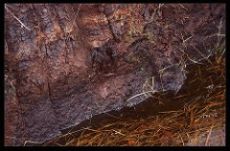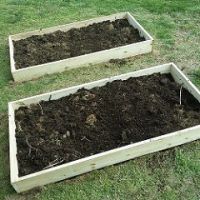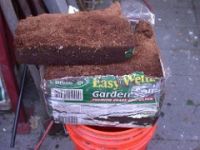The Problem With Peat and Some Good Alternatives

What is the Problem with Peat?
Peat is organic material that has very slowly, and in specific conditions, rotted down over the years. Its rich, organic make up means that it is an ideal growing medium for hungry seedlings. It is extremely fertile and holds water well, meaning that it found a large following amongst keen gardeners as a potting medium. Many composts and seed growing media commonly sold in garden

centres contain this natural material.
The problem is that peat only forms very slowly, perhaps around 1mm per year at the maximum. Peat is being taken for gardeners at a much faster rate than it can naturally be replaced. This means that the valuable carbon sinks that peat bogs provide are being eroded, which allows more carbon and other greenhouse gases to linger, loose, in the atmosphere. This contributes to the massive problem of global warming. If we are to transition to a more sustainable age then we will have to eliminate our unnecessary use of peat as part of our efforts as gardeners to contribute to a more ethical and environmentally friendly solution to our global problems.
What Can we Use Instead?

The good news is that although peat is excellent as a growing medium, increasingly, green alternatives are available that can deliver results that are just as good. Materials that are being used to make peat alternatives as a potting medium and mulching material include bark, fibre, coir, biosolids, bracken and green compost. Comparative experiments have shown that most plants will do just as well when grown in peat alternatives as they do in peat. The key for gardeners switching from peat to non-peat alternatives is to try out different options and carry out their own small tests to see which one works best for their own purposes, in their own situation.
The alternatives of peat-free potting medium/ compost alternatives are clear. Not only are we stopping the destruction of the peat areas, a useful carbon sink, we are also able to reduce our carbon footprints by choosing these products. By supporting the local development of eco-friendly peat alternatives, as an alternative to peat extraction abroad, we are reducing the environmental impact of transportation of the material. What is more, we are supporting local industries such as composting collection schemes, forestry and others. Moving towards peat free gardening is a win-win situation.